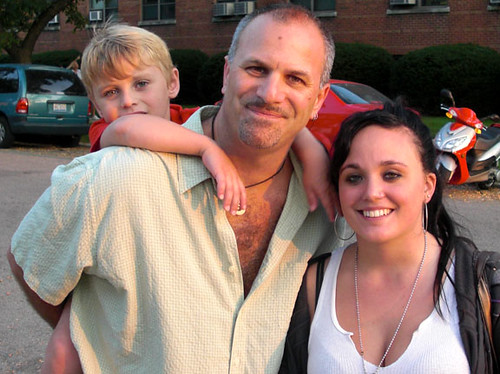 With Tiger Woods in the news for this latest round of Very-Public-Infidelity, guest blogger Ebony A. Utley weighs in with her expertise on the issue. A research expert on marital infidelity, Utley confronts common stereotypes and raises questions about cheating, talking, silence, and power.
With Tiger Woods in the news for this latest round of Very-Public-Infidelity, guest blogger Ebony A. Utley weighs in with her expertise on the issue. A research expert on marital infidelity, Utley confronts common stereotypes and raises questions about cheating, talking, silence, and power.
The proverbial cats are out of the bag as the tabloid media collect stories from Tiger Woods’ alleged mistresses. The mistresses are increasingly chatty — talking about “I was with Tiger here†and “he left me a voicemail there.†Woods is busy denying what he can and apologizing for what he can’t while Mrs. Woods remains silent.
None of this is unusual. With a slew of high-profile unfaithful men in the news lately, it’s hard not to notice a pattern. These men haven’t come out in public to say, “I had inappropriate sexual relations outside my relationship†without first facing an impeachment trial, sexual-assault accusations, blackmail threats, texts, sexts, voicemails … you get the picture. Rarely have these men come clean without some sort of provocation. Often, famous unfaithful men confess to their infidelity because the other woman beat him to it.
Mistresses are notorious for telling their side of the story because the world wants to hear it. The sex secrets of sexy women are titillating. Be honest with yourself. You wanted to know whether Tiger’s mistresses were prettier than his wife. Some of you readers out there also wanted to know whether she looked like she was better at sex than the wife. Admit it. Those are our society’s infidelity stereotypes. The other woman had to be offering something that the wife did not.
The wife wasn’t giving it up. Or if she was, her sex was boring.
The wife let herself go.
The wife was too invested in the kids.
The wife didn’t (emotionally) support her man.
The wife was emasculating.
The wife was never around.
Mistresses are quick to perpetuate these stereotypes, but the husbands are quick to offer their wives $4 million diamond rings and $80 million prenup revisions. If the wives were such horrible people, why dish out all the cash to keep them? Since the husband can no longer keep the mistress quiet, is he buying his wife’s silence? I don’t think so. Men who cheat on their wives rarely want to leave them; usually they’re genuinely sorry. The silence on the wives part is not about his money. It’s about power.
A mistress has power because she is the secret. She is the one tasked with being discreet. Once the secret is out, the mistress loses her power. She scrambles to get it back with revealing details, but the more she talks, the more her power diminishes. People know who she is, where she was, what she did, how she did it, and who else she did it with. Once the prurient details are all out there, people are free to pass judgment on the mistress and she rapidly moves from sexy story to object of public scrutiny to obscurity.
But the wife who refuses to talk gains power. Now she is the one deciding to be discreet. No one knows what she’s thinking and everyone wants to. Did she know? Did she have a revenge affair? Why didn’t she leave him? Does she love him that much? How is she going to spend those millions? The quieter she remains, the more dignity that wife regains. Long after we’ve forgotten the mistress’ name and the seedy motels and the racy voicemails, the silent wife is still standing in the spotlight with an air of mystery about her. We might not understand her, but her secrets are the ones that garner respect. The most understated gift a chatty mistress gives to the wife is power.
 Ebony A. Utley, Ph.D. is an expert in infidelity. She is currently writing about her interviews with wives who have experienced infidelity during their marriages. See more of her research at http://www.theutleyexperience.com/
Ebony A. Utley, Ph.D. is an expert in infidelity. She is currently writing about her interviews with wives who have experienced infidelity during their marriages. See more of her research at http://www.theutleyexperience.com/







 If I could think of a topic that travels around the conversations of most women I know, the choice to have a child, and when, often lives pretty near the top of the list. Following it comes a litany of concerns: how to juggle career, partnerhood, personal and professional ambitions, and more.Â
If I could think of a topic that travels around the conversations of most women I know, the choice to have a child, and when, often lives pretty near the top of the list. Following it comes a litany of concerns: how to juggle career, partnerhood, personal and professional ambitions, and more.  My latest Love in the Time of Layoff column is now up at Recessionwire.com. It’s titled
My latest Love in the Time of Layoff column is now up at Recessionwire.com. It’s titled  There’s so much Father’s Day goodness out there today I don’t know where to start.
There’s so much Father’s Day goodness out there today I don’t know where to start. My latest, up at Recessionwire.com
My latest, up at Recessionwire.com


 Josh Coleman steps up to the mike and frames the conference by starting with how the women’s movement has made life better not only for women but for men. Yet at the same time, and especially in this moment of recession, where men are being laid off in droves, women’s increased power is in some way a challenge to men’s identity. The traditional markers of male identity–protector, provider–have been eroded. As Michael Kimmel says, men are left with all of the empowerment and none of the power. [??!!] So there’s a crisis in masculinity out there. (Ok, yes, reality check: women earn 80% what men do, etc etc.)
Josh Coleman steps up to the mike and frames the conference by starting with how the women’s movement has made life better not only for women but for men. Yet at the same time, and especially in this moment of recession, where men are being laid off in droves, women’s increased power is in some way a challenge to men’s identity. The traditional markers of male identity–protector, provider–have been eroded. As Michael Kimmel says, men are left with all of the empowerment and none of the power. [??!!] So there’s a crisis in masculinity out there. (Ok, yes, reality check: women earn 80% what men do, etc etc.) So this just well may be my favorite annual report out there, and it’s just out now:
So this just well may be my favorite annual report out there, and it’s just out now: 